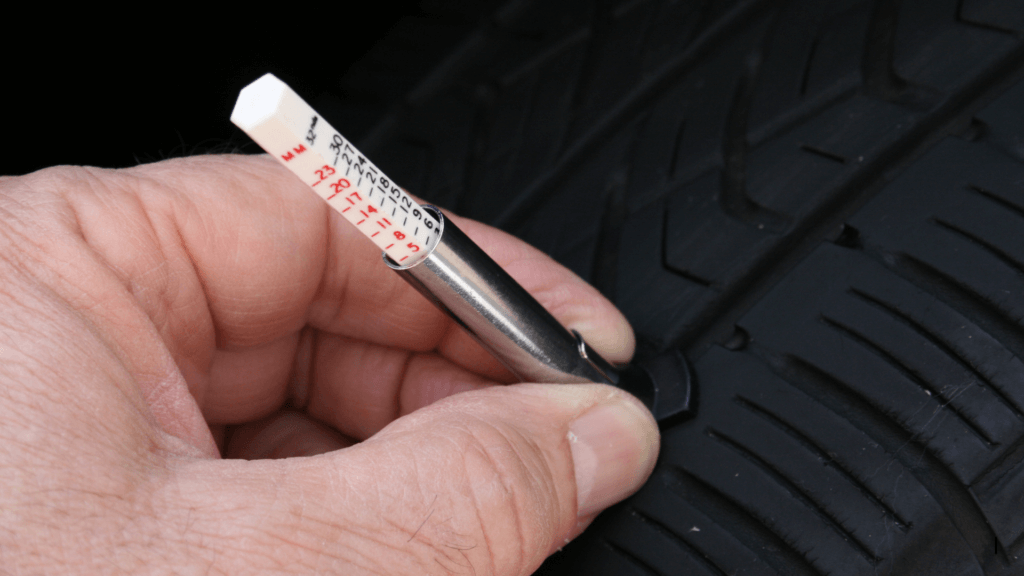Tire Care 101
Tire Cleaning, Tire Care, Tire Storage and
Tire Maintenance Tips at Take Off Tire
Cleaning Your Tires
Recommended Cleaning Methods
- Use Mild Soap and Water: Rinse your tires with water to remove loose dirt and debris. Then, use a mild soap or a dedicated tire cleaner and a soft brush to scrub away the grime. Rinse thoroughly.
- Tire Cleaners: Use tire cleaners that are specifically formulated to remove brake dust, road grime, and other contaminants without damaging the rubber.
Cleaning Methods to Avoid
- Harsh Chemicals: Avoid using household cleaners like bleach or ammonia, as they can degrade the rubber and cause premature aging.
- Pressure Washing: High-pressure washing can be too harsh on the rubber, leading to damage and reducing the lifespan of your tires.
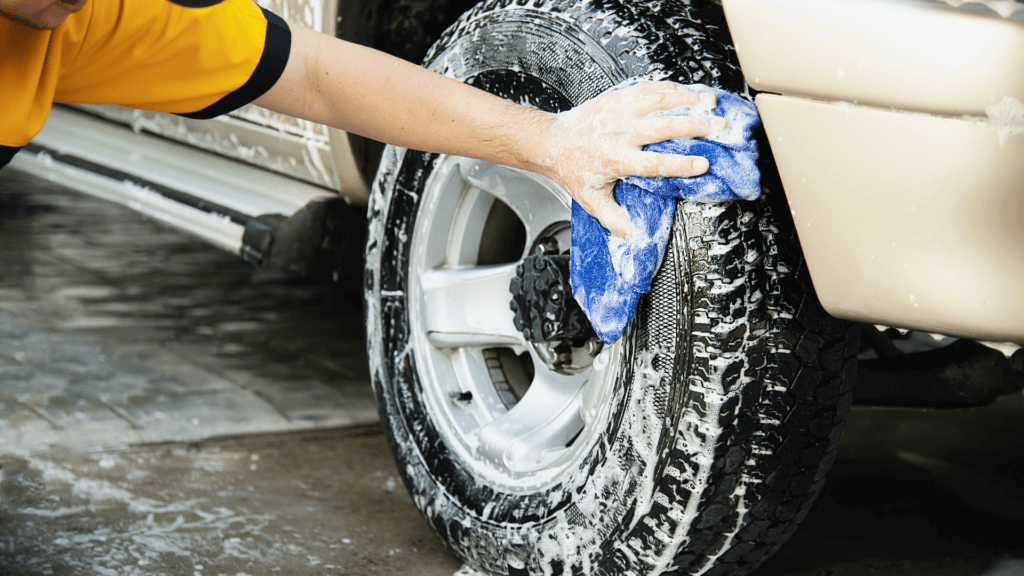
Tire Storage
Proper tire storage is crucial when you’re switching out seasonal tires or keeping a spare set.
- Clean and Dry: Before storing, clean your tires thoroughly and make sure they are completely dry to prevent mold and mildew.
- Cool, Dry Location: Store tires in a cool, dry place away from direct sunlight, heat sources, and appliances like furnaces.
- Bag Them Up: Use tire storage bags or heavy-duty plastic bags to keep them protected from dust and environmental exposure. Remove as much air as possible from the bags.
- Vertical Positioning: Store tires vertically to prevent deformation. If you must stack them, limit the stack to four tires and rotate the stack monthly.
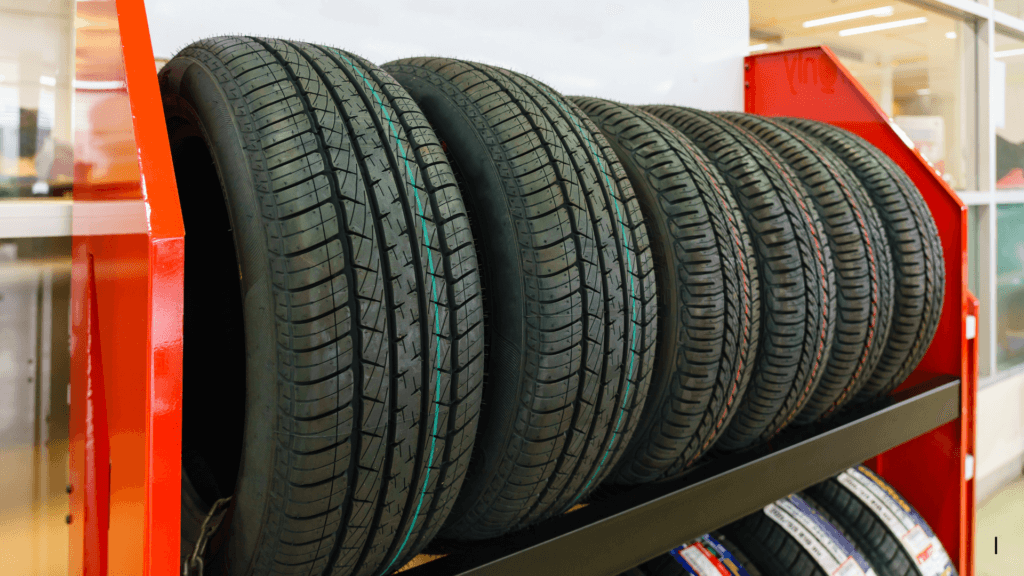
Maintaining Proper Air Pressure
Maintaining the correct tire pressure is vital for safety, fuel efficiency, and tire longevity.
- Check Regularly: Check your tire pressure at least once a month and before long trips. Always use a reliable tire gauge.
- Follow Manufacturer Guidelines: Refer to your vehicle’s owner’s manual or the tire placard on the driver’s side door jamb for the recommended pressure levels. (If your tire calls for drastically more air pressure than your vehicle recommends, contact Take Off Tire for advise!)
- Cold Tires: Check tire pressure when the tires are cold, as driving heats them up and can give a false reading.
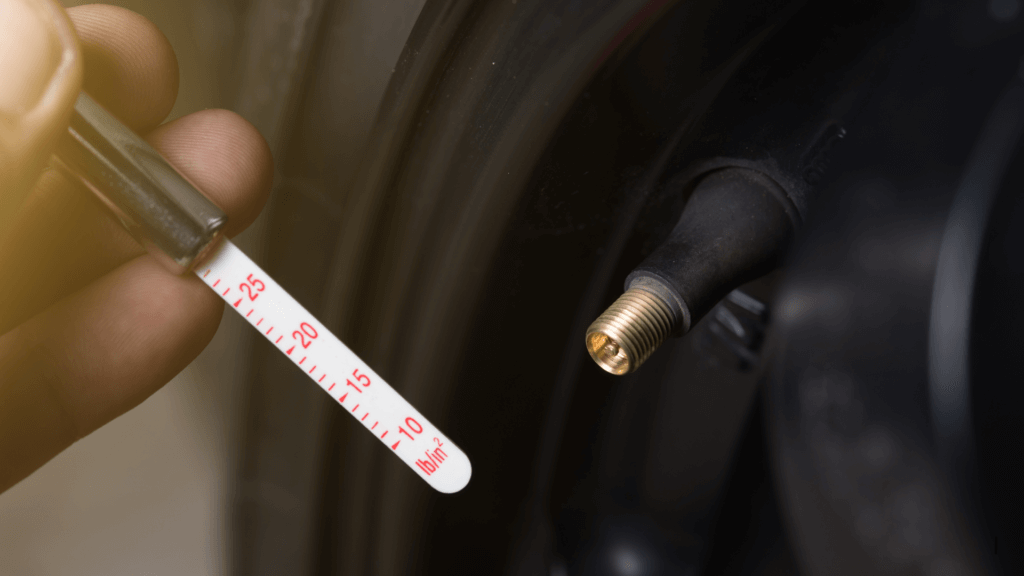
Routine Tire Service
Regular tire maintenance can prevent uneven wear and extend the life of your tires.
- Tire Rotation: Rotate your tires every 5,000 to 7,500 miles or as recommended by your vehicle’s manufacturer. This supports even wear across all tires.
- Tire Balancing: Have your tires balanced every other time they are rotated (every rotation for extreme precaution). Properly balanced tires ensure a smooth ride and prevent uneven tire wear.
- Alignment: At a minimum, get your vehicle aligned with a new purchase of tires. If you notice uneven tire wear, your vehicle pulling to one side, collisions, or after hitting a significant pothole are also times for alignment.
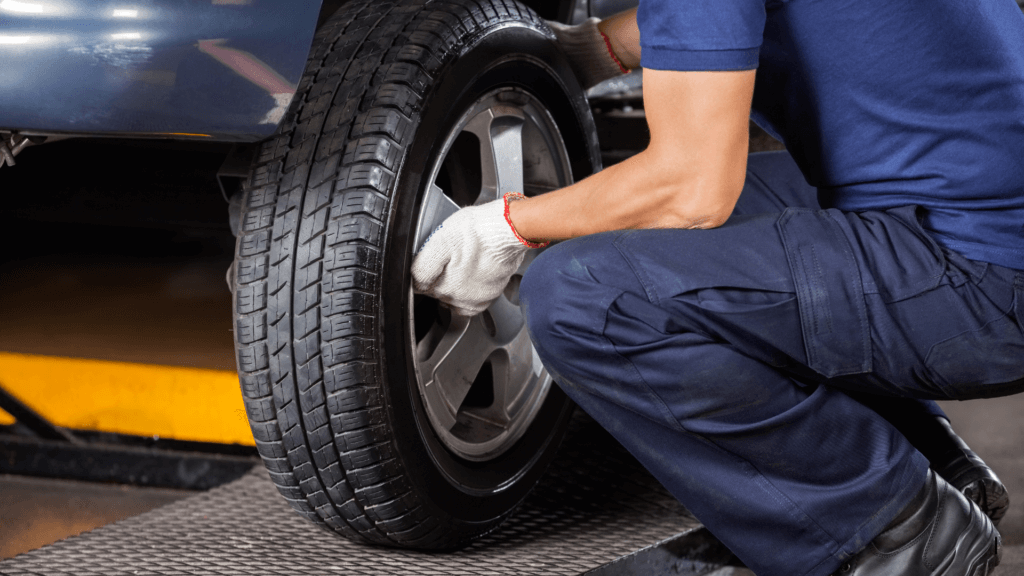
Additional Tire Care Tips
- Inspect Regularly: A great time for a tire inspection is when you’re at the gas station. Give your vehicle a walkaround. Look for signs of damage or wear, such as cuts, punctures, cracks, or bulges. Address issues promptly to prevent further damage.
- Tread Depth: Ensure your tires have adequate tread depth. A simple method is using the penny test: insert a penny into the tread with Lincoln’s head upside down. If you can see the top of Lincoln’s head, it’s time for new tires.
- Avoid Overloading: Do not exceed the load capacity of your tires. Overloading can cause excessive heat buildup and lead to tire failure.
